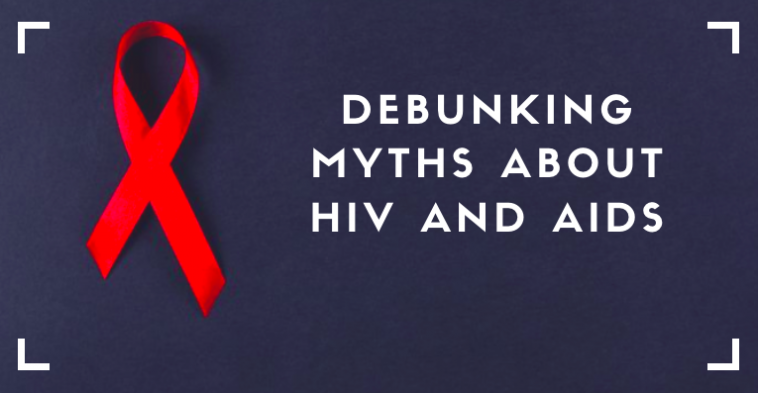Today is World AIDS Day, a day dedicated to raising awareness on the AIDS pandemic; showing support for people living with the virus; and to mourn those who have died from the disease. It is one of the eight official global public health campaigns marked by the World Health Organization and it has been marked on the first of December every year, since 1988.
Stigma and a lack of understanding about the virus are still a very big issue, mostly fueled by misinformation. Many HIV/AIDS myths have been in circulation for the past 3 decades, but today we would debunk 7 of those myths and give you facts.
-
HIV and AIDS is a death sentence
This is not true. In the early years when the disease was epidemic, the death rate was extremely high. Now, there are antiretroviral medications that allow an infected individual live a long and relatively normal life.
-
HIV can be spread through kissing, mosquito bites, swimming pools:
This is a widely debunked claim. HIV can only be transmitted through an exchange of body fluids such as; semen, blood, vaginal fluids, breast milk. It cannot be spread through physical contact unless you have an open wound. When a mosquito bites, it injects saliva and does not inject the blood of the last person it bit. HIV can’t survive in water so you won’t get it from swimming pools.
-
HIV and AIDS are the same:
I hear people say HIVAIDS. There’s nothing as such. HIV is the virus that infects the person and weakens the immune system. AIDS is the disease that develop later in people with HIV that are not receiving treatment.
-
Women who are infected with HIV/AIDS cannot give birth to an HIV negative child:
Not true. As long as the mother is tested early during pregnancy and put on medications, then there is only a very small risk of passing the virus on to your baby. However, you should not breastfeed your baby because the virus can also be transmitted through breast milk.
-
It’s easy to detect an HIV-positive person.
Nope, e no dey show for face. People on effective treatment are just as likely to look as healthy as everyone else.
-
I’m a virgin, so i’m safe:
No, darling. It only means you are not at risk of getting HIV from sex. The virus could also be transmitted through, blood transfusion, infected needles etc
-
My partner and I are both HIV-positive, so we don’t have to practice safe sex:
False. There are different strains of HIV and your partner may have a different strain than you. Wearing condoms or practising safe sex can protect you both from other possibly drug-resistant strains of HIV.
BONUS
You can have sex with someone who is HIV positive without risking getting HIV.
People who are not infected with HIV can use condoms and take medications called PrEP (pre-exposure prophylaxis) , daily or prior to sex to dramatically reduce their risk.
Bathing after sex or taking contraceptive doesn’t work.
Share to save a life.






